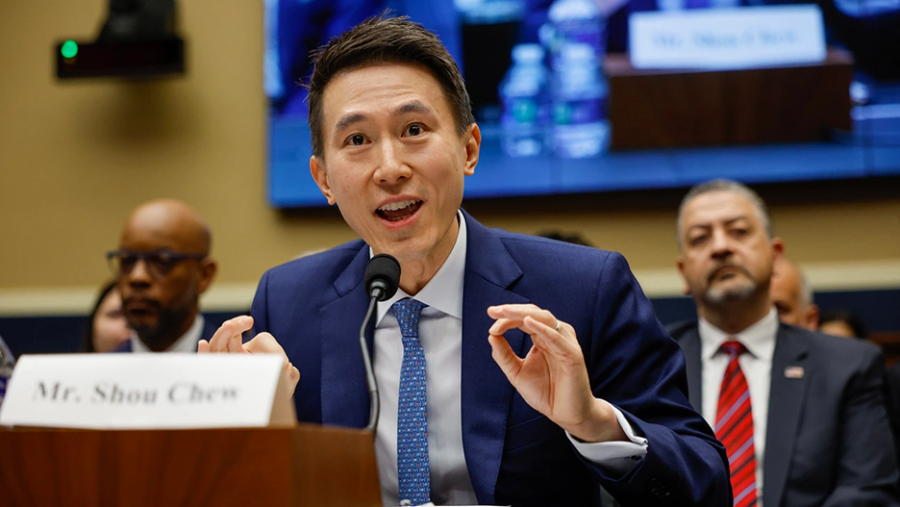The potential ban of TikTok and its impacts on small businesses.
April 13, 2023
ERIE, Pa., April 11, 2023 – In recent months, U.S. lawmakers have accelerated efforts to restrict access to TikTok, the popular short-form video app from Chinese company ByteDance.
Accordingly, the government expressed concerns that this Chinese-originated app may endanger sensitive user data.The restrictions were triggered on Feb. 27 when the White House asked federal agencies to remove the app from government devices within 30 days. At the same time, a growing number of other countries and government bodies – including the United Kingdom and Canada, the executive arm of the European Union, France and New Zealand’s Parliaments – have recently banned the app from their official devices. Additionally, Australia is the latest country to ban TikTok on government devices following the advice of intelligence and security agencies.
Nevertheless, some officials have pronounced an indeed more extreme step. On March 1, a House committee voted to advance legislation that would permit President Biden to ban TikTok from all devices across the nation. On March 23, Shou Chew, TikTok’s chief executive, was encountered in roughly five hours of testimony about the relationship between the app’s parent company and the Chinese government.
In recent years, Western lawmakers and regulators have increasingly expressed concern that TikTok and its parent company may put sensitive user data, including location information, pictures, and videos, into the hands of the Chinese government. They have pointed to laws that allow the Chinese government to covertly collect data from Chinese companies and citizens for intelligence-gathering operations. In addition, officials worry that TikTok’s algorithm could be used to spread misinformation. While TikTok’s CEO has denied such accusations and tried to distance the app from Bytedance, the conspiracy keeps rolling.
L.A. Times tech reporter Brain Contreras shares how TikTok has become a unique money-making platform. In an interview hosted by the L.A. Times, Contreras explains how TikTok could turn content into profit.
“Even if you have zero followers, if you are able to make a video that capitalizes on what the algorithm wants, or at least what it thinks users want to see, you can blow up sort of out of nowhere,” Contreras states. “TikTok has also introduced a number of different monetization features to help people make money. They have a creator fund that’s supposed to share some of the profits that the company is getting through ads. There is a lot of criticism that you make a lot more money from a Youtube video than you do from one TikTok or even multiple TikToks. Your presence on a platform doesn’t necessarily convert to money unless you are a big name, at the end of the day. It’s a mixed bag, but certainly, it has made people take making money on social media more seriously than they did before.”
To many, this social media app has become part of how to maintain their business, especially during the pandemic. The app uses short video content to provide an accessible way for small businesses to communicate with their customers. A prominent example is the thriving sales of Dark Mother Clothing, a small gothic and alternative clothing business.
Launched in 2019, this small business generated only $5,000 to $6,000 in sales during its first years. By joining TikTok at the beginning of the pandemic, their profit reached $217,000 in 2022 after a couple of their posts went viral.
An outright ban on the app would be a devastating blow to many small businesses that depend on TikTok to reach potential customers instead of placing their products on expensive traditional retail channels.
Kellis Landrum, co-founder of Los Angeles marketing agency True North Social shares in her post how Facebook and Instagram are not money-worthy investments compared to TikTok.
“TikTok offers the broadest of any of the channels right now,” Landrum said. “If you are very successful on TikTok, that’s probably most of what you are focusing on because as a small business, you can’t afford to attack marketing on a bunch of different fronts at the same time.”
To change legislators’ minds, TikTok paid a group of TikTokers to travel to Washington ahead of Chew’s testimony to protest the potential ban of their favored app. Chew himself posted a TikTok appealing to the masses a few days before his testimony.
Ultimately, Forbes predicts that a potential ban will affect far more businesses and people than just 150 million users, and possibly the American economy at large.
For creators, the same challenges have been posed repeatedly, but disguised as something else. Without TikTok, small business owners would be forced to focus their efforts on other social media platforms such as Instagram and Facebook. Nevertheless, the final decision by the U.S. government and how to mitigate its impacts are yet to be determined.






